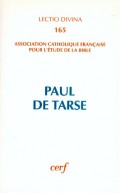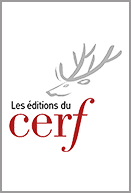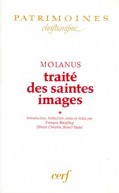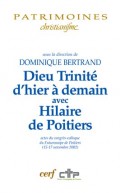
Le Christianisme et la crémation
Collection Sciences humaines et religions
512 pages - mai 2012
42,90€
En 1963, l'Église catholique lève l'interdiction de recourir à la crémation des corps. Et l'histoire des Églises chrétiennes en général, et de l'Église catholique en particulier, avec cette pratique est complexe... Piotr Kuberski offre au lecteur la première véritable étude sur ce sujet. Les questions qu'il aborde sont nombreuses : Quel crédit accorder à cette perception selon laquelle, dès son origine, le christianisme fut marqué par un refus de la crémation ? Ce refus serait-il le résultat de l'incompatibilité foncière entre la religion chrétienne et la coutume de brûler les morts ? L'hostilité vis-à-vis de la crémation tient-elle au fait que cet usage « a été compris par l'Église comme susceptible de porter atteinte à sa foi en la résurrection et à la vie éternelle » ? Cette hostilité est-elle une constante, traduite par des condamnations successives et répétées ? Pour instruire ce dossier, ce livre se place dans une perspective essentiellement historique. Il présente et analyse les sources, à la fois écrites et matérielles : textes littéraires de natures très diverses (écrits bibliques, traités et commentaires théologiques, passions des martyrs, vies des saints, textes mythologiques, récits de voyage, utopies...), décisions des autorités religieuses et civiles ; des essais historiques ; des articles médicaux ou encore des épitaphes. L'archéologie n'est pas en reste. L'actualité de ces questions n'est pas à démontrer : la pratique de la crémation est en progression. Le nombre de publications qui lui sont consacrées ne cesse de croître, notamment dans le monde anglo-saxon ou italien. En revanche, la France accuse un certain retard dans la recherche sur ce phénomène massif qui concerne au plus près la vie de chacun, la vie de la société et qui interroge les pratiques ou les coutumes religieuses. Avec ce livre pionnier, solide et très documenté, Piotr Kuberski vient combler ce vide et apporte au débat et à la recherche une contribution de premier ordre.
--
In 1963, The Catholic Church lifted its ban on cremation. The history of the Christian Churches’ attitude to this practice, and of the Catholic Church in particular, is complex... Piotr Kuberski has brought us the first in-depth study of this subject. He raises many questions: Should we believe the idea that Christianity, right from its origins, manifested a refusal of cremation? Was this refusal the result of a deep incompatibility between the Christian religion and the custom of burning the dead? Does the hostility toward cremation come from the fact that this practise was ‘understood by the Church to be likely to impair faith in the resurrection and in eternal life’? Is this hostility a constant factor, expressed by successive and repeated condemnations? To treat this subject, this book adopts an essentially historical perspective. It presents and analyses its sources, both written and concrete: literary texts of various kinds (biblical, treatises and theological commentaries, the passions of martyrs, lives of saints, mythological texts, travellers’ logs, utopias...), decisions made by civil and religious authorities; historical essays; medical articles and even epitaphs. Archaeology is also makes a contribution. The modernity of these questions is incontestable: the practise of cremation is expanding. The number of publications devoted to the subject is in constant increase, especially in the English-speaking or Italian world. France, on the contrary, is trailing behind in its research on this mass phenomenon which concerns all of us in our own lives, and society as a whole; and which raises questions for religious practices and customs. With this pioneering book, sound and richly documented, Piotr Kuberski has filled a gap and made a vital contribution to debate and research.
--
In 1963, The Catholic Church lifted its ban on cremation. The history of the Christian Churches’ attitude to this practice, and of the Catholic Church in particular, is complex... Piotr Kuberski has brought us the first in-depth study of this subject. He raises many questions: Should we believe the idea that Christianity, right from its origins, manifested a refusal of cremation? Was this refusal the result of a deep incompatibility between the Christian religion and the custom of burning the dead? Does the hostility toward cremation come from the fact that this practise was ‘understood by the Church to be likely to impair faith in the resurrection and in eternal life’? Is this hostility a constant factor, expressed by successive and repeated condemnations? To treat this subject, this book adopts an essentially historical perspective. It presents and analyses its sources, both written and concrete: literary texts of various kinds (biblical, treatises and theological commentaries, the passions of martyrs, lives of saints, mythological texts, travellers’ logs, utopias...), decisions made by civil and religious authorities; historical essays; medical articles and even epitaphs. Archaeology is also makes a contribution. The modernity of these questions is incontestable: the practise of cremation is expanding. The number of publications devoted to the subject is in constant increase, especially in the English-speaking or Italian world. France, on the contrary, is trailing behind in its research on this mass phenomenon which concerns all of us in our own lives, and society as a whole; and which raises questions for religious practices and customs. With this pioneering book, sound and richly documented, Piotr Kuberski has filled a gap and made a vital contribution to debate and research.
- Dimensions : 135x215x27
- ISBN : 9782204096256
- Poids : 630 grammes
Avec la collaboration de : François Boespflug
DU MÊME AUTEUR
> VOIR TOUS LES LIVRES DE l'AUTEUR
DANS LA CATÉGORIE LE FAIT RELIGIEUX
Les livres de l'Avesta. Les textes sacrés des zoroastriens
Le livre sacré des zoroastriens
1376 pages - janv. 2017
Controverse religieuse et ses formes (La)
de Centre d'Études des Religions du Livre
432 pages - mars 1995









